ExpertFlyer Guide: Search for award flights and set reminders

When you dive into the world of points and miles, you’ll quickly realize that there’s more to upgrades and award redemptions than meets the eye. Sometimes, bookable partner flights don’t appear online, and phone agents may not be properly trained to navigate the complexities of itineraries and partnerships.
Fortunately, there are tools that make reward redemption easier. In this guide, we’ll show you how to use ExpertFlyer (owned by TPG parent company Red Ventures) to find award space and simplify booking your dream trip.
We’ll share the basics of ExpertFlyer and provide step-by-step instructions for using the tool to find bonus space and set reminders.
ExpertFlyer Basics
ExpertFlyer currently offers three plans, including a free option. Different features are available with each plan – here’s a quick overview:
- free:Set an alert to notify you when a better seat becomes available on your flight. You can only get one free reminder at a time, but you can add more for 99 cents each.
- basic ($4.99 per month or $49.99 per year): Offers additional features such as award and upgrade inventory searches and flight availability (including fare ranges). You can set up four seat alerts at a time, but the number of queries per month is limited to 250.
- high quality ($9.99 per month or $99.99 per year): Includes more flexible search options, unlimited queries, 200 seat alerts at a time, aircraft change alerts, and the ability to create up to 200 flight availability alerts.
With ExpertFlyer you can find almost any information about flight schedules, seat maps, flight status and award availability. These are important tools to keep in your frequent flyer toolbox, especially if you’re booking at the last minute and need to lock in a specific flight.
The ExpertFlyer platform currently allows you to search this inventory on 27 airlines. Look carefully at the list to see what the airline you want has in stock – American Airlines, for example, shows award and upgrade space on its flights. While United and Delta are not listed on ExpertFlyer, you can check award and upgrade availability on other U.S. airlines, such as Alaska Airlines, Hawaiian Airlines, and JetBlue. Additionally, you can search for award space on international airlines such as Air France, Air Canada and Qantas.
Find award seats and set award reminders

Let’s get straight to the hunt for bonus space. Before you begin, make sure you have a Basic or Premium account, as free accounts cannot run awards searches. If you’re a new member, you can sign up for a free five-day premium trial.
Set up your ExpertFlyer search
Once logged into your account, select the “Rewards & Upgrades” tool on the left sidebar. You’ll immediately notice several search fields. Fill in basic information such as your departure and arrival airports and departure and return dates. If you are looking for a one-way flight, please leave the return date blank.

Reward your inbox with the TPG daily newsletter
Join over 700,000 readers and get breaking news, in-depth guides and exclusive offers from TPG experts
The premium subscription comes in handy here, as it lets you search for content up to three days before or after your desired travel date. This allows you to view a week at a time and search for multiple fare classes. If your dates are flexible, do so as you can easily find more bonus space.
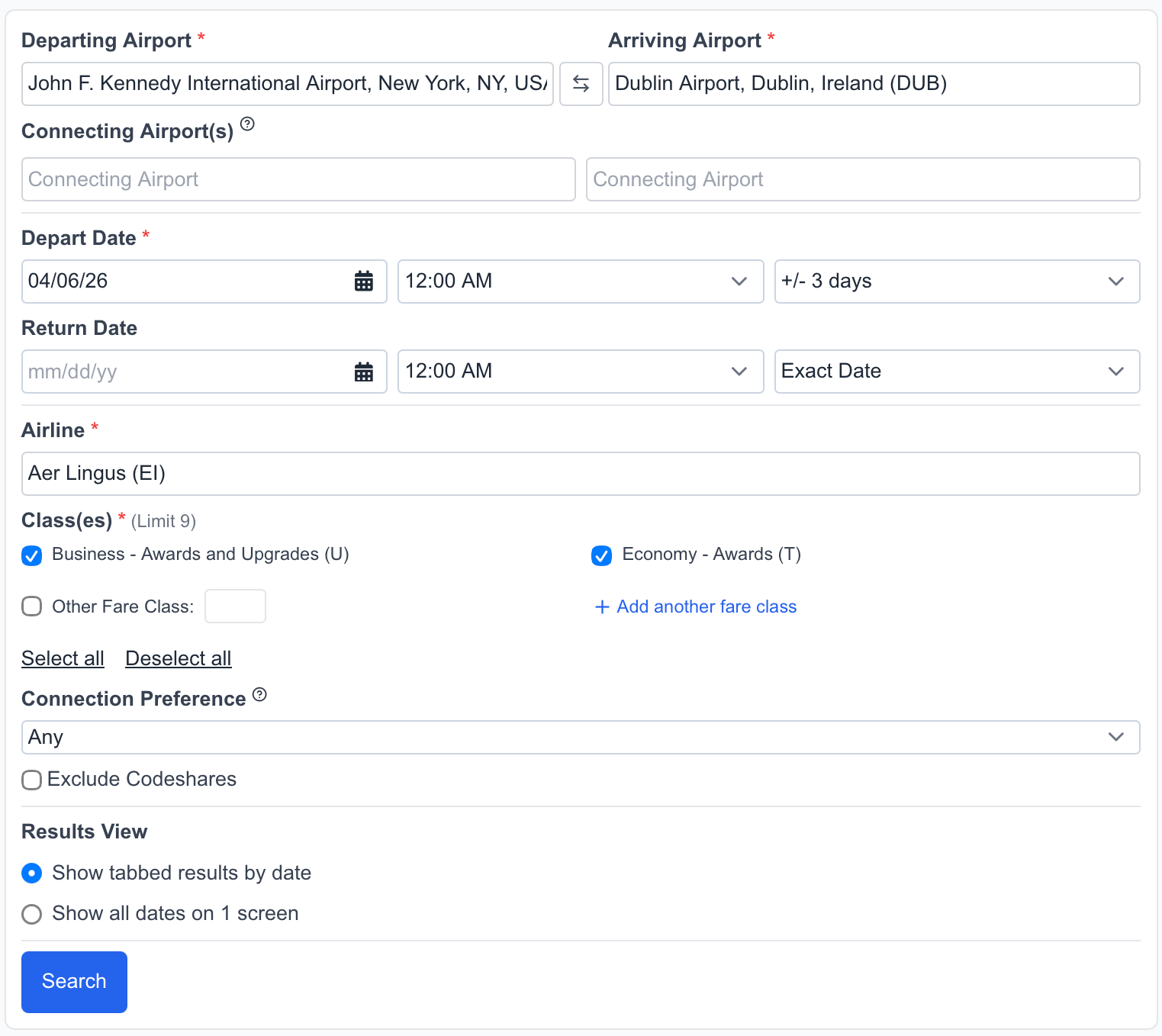
When you select the airline you want to fly, you’ll see the fare classes that ExpertFlyer can search for, along with descriptions.

To search for direct flights on ExpertFlyer, select the “Direct/Direct only” option. If you’re only interested in a specific airline you’re searching for, you can exclude codeshare flights. When searching for multiple dates, select the Show all dates on 1 screen option to see all results at once, making scrolling easier.

Related: The Best Sites to Search for Oneworld Bonus Availability
Read ExpertFlyer search results
Click the search button at the bottom of the screen to see a list of available flights broken down by date. Each flight option displays the fare class you searched for. Some airlines, such as American Airlines, also display the number of seats available in that class of service. Other airlines will display “Yes” or “No”; the former shows whether the flight has at least the number of seats available for your search.
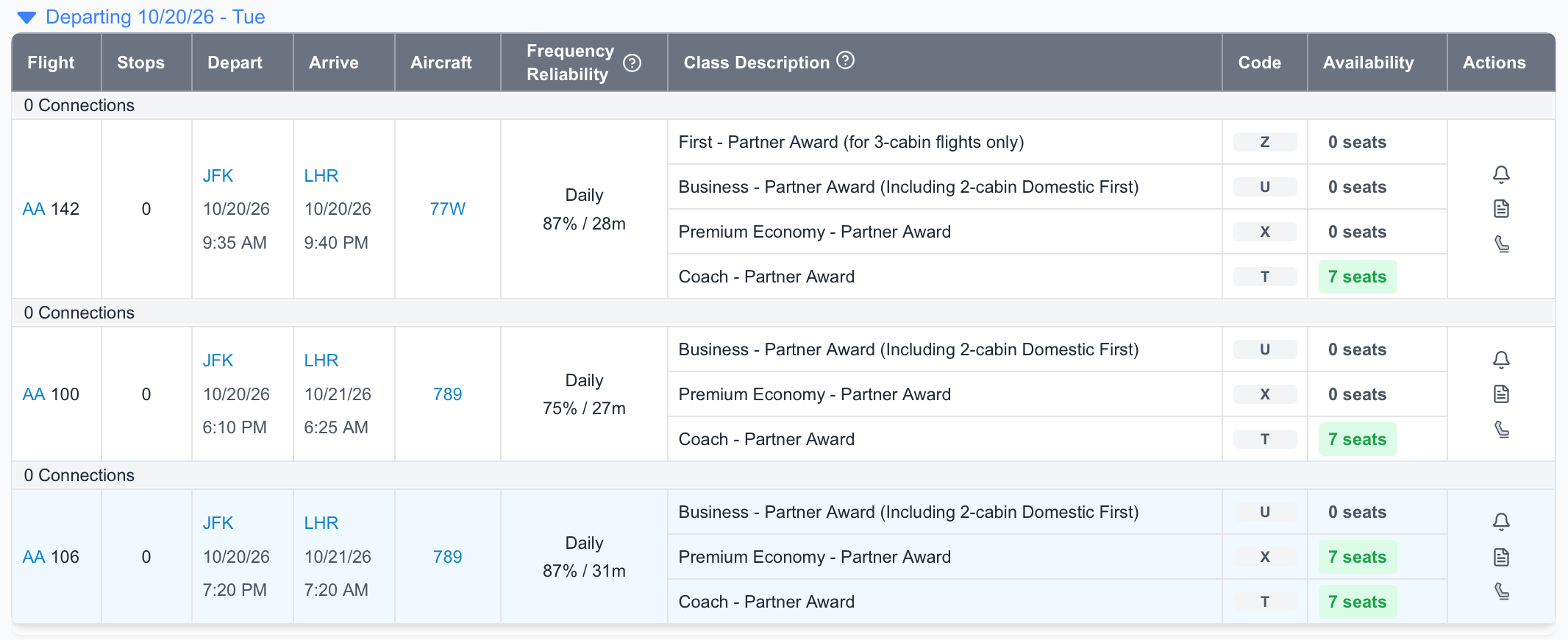
The results page will also show you the connecting options available for your itinerary (if you don’t restrict it to direct flights).
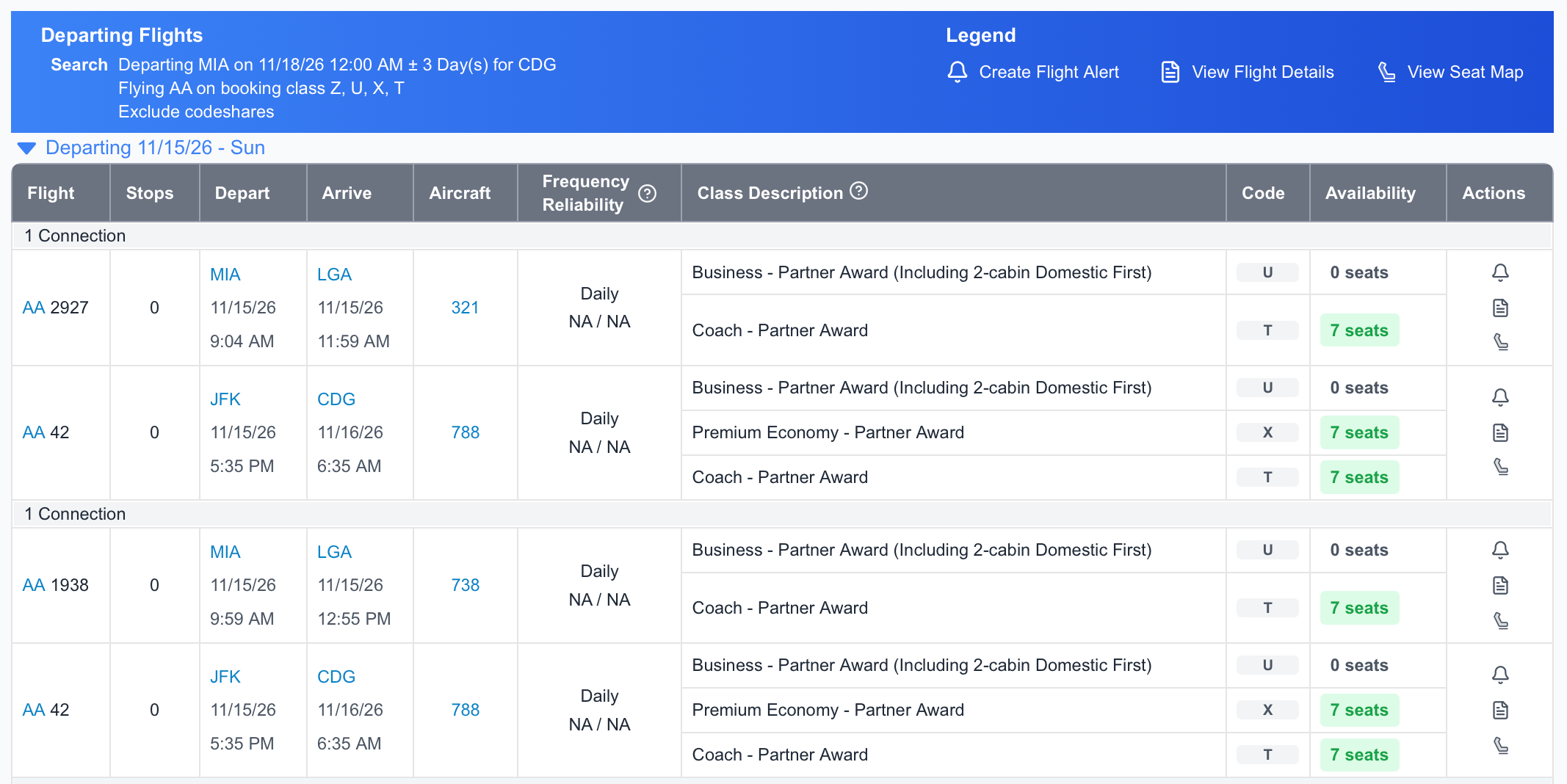
Once you have confirmed the date, flight number and fare class, you can book your flight online. If the flight does not appear on the airline’s website, call the airline and provide the representative with the accurate information for the flight you found. They may be able to book it for you.
If the flight you want to book doesn’t have the fare class you want, you can set an alert by selecting the box with the exclamation point at the top. If you set a reminder, ExpertFlyer will send you an email as soon as your seat is released.

RELATED: Avoid Fees: How to Change and Cancel Airline Award Tickets
Set up ExpertFlyer seat reminders
With ExpertFlyer’s Seat Alerts feature, after setting an alert, you’ll be notified if a specific seat becomes available on your flight. This is helpful if you’re stuck in a middle seat or a windowless window seat. Instead of manually checking for a better seat every day, ExpertFlyer does the legwork for you.
To open a seating map and create a reminder, select the “Seating Map” option from the left toolbar. Then enter your flight details into the form in the center of the screen. You will need to provide the origin and destination airports, departure date, airline and flight number.

In this case, I only chose economy class since my booking was for economy class. The first class seat reminder didn’t help here because even if a first class seat was available, I couldn’t select it without paying for an upgrade.
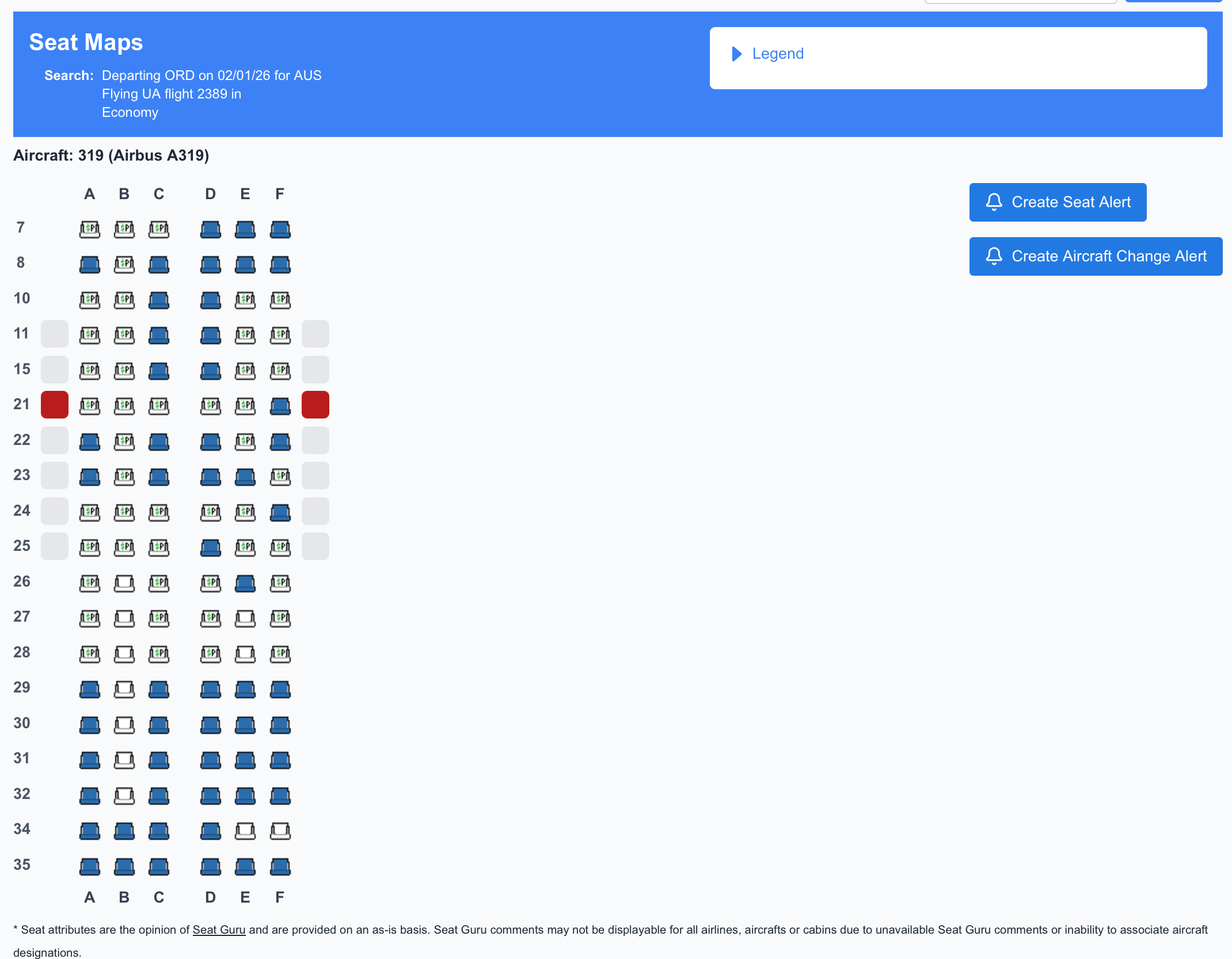
I can set up seat alerts by clicking “Create Seat Alert” and using the “Select Specific Seat” feature. I can then choose to be alerted when any window, aisle or exit row seat opens, any two seats open at the same time, or when a specific seat becomes available.

RELATED: How to Use ExpertFlyer Alerts to Get a Better Seat on a Plane
Real-life example of booking rewards with ExpertFlyer
Alaska Airlines Atmos Rewards is one of my favorite loyalty programs, primarily because of its discounted partner rewards rates on short-haul flights.
If you want to use 4,500 Atmos bonus points to book a short-haul domestic flight on American Airlines, you can check American Airlines’ award space by going to the “Rewards & Upgrades” page on ExpertFlyer. Once there, enter your search criteria and select “Coach – Saver Award (T)” as the cabin you’re interested in booking. If your plans are not yet confirmed, you can also search for availability three days before and after your specified departure date. Additionally, you can only specify direct flights.
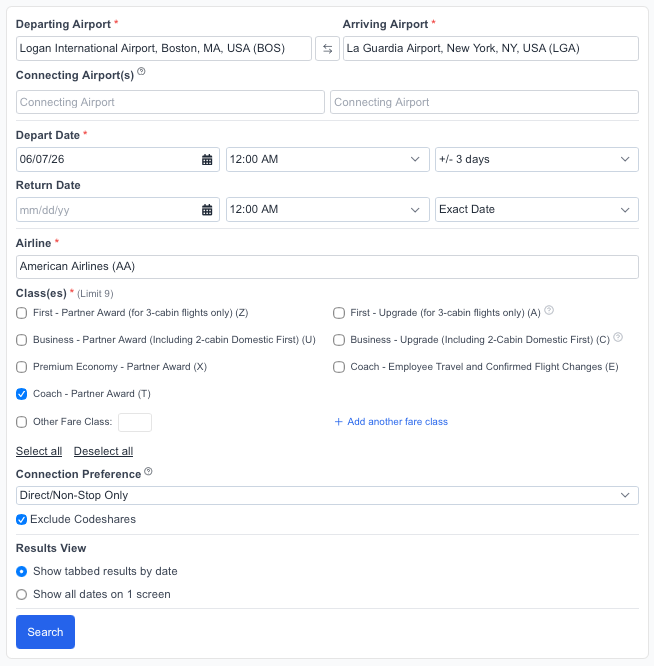
Here’s an example search from Boston Logan International Airport (BOS) to New York LaGuardia Airport (LGA) on American Airlines in early June.
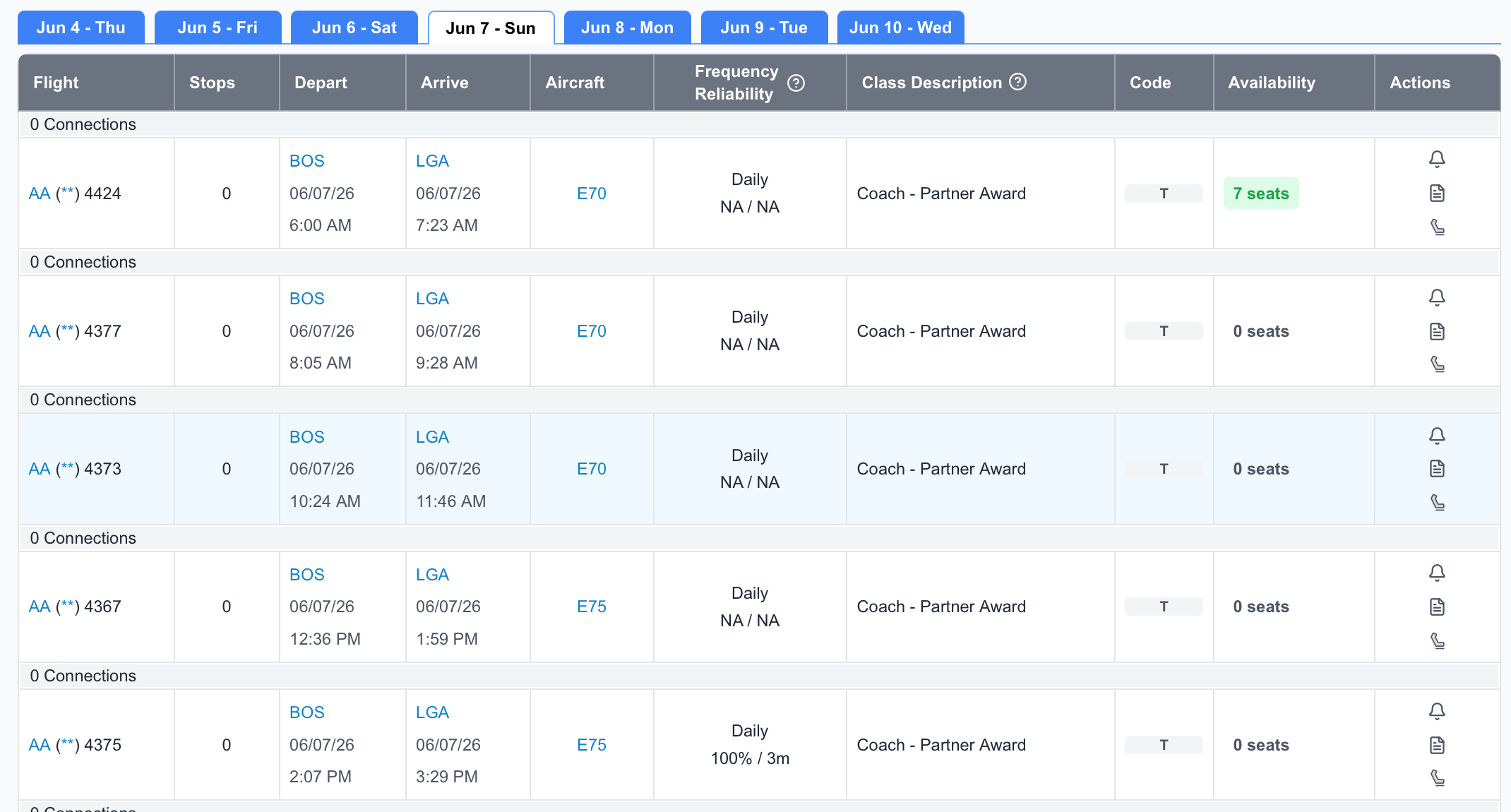
There are 7 seats available on June 7th, represented by the number “7” in the “Seats” column. At this point, you’ll need to write down your flight information and book with Alaska Airlines through your Atmos Rewards account.
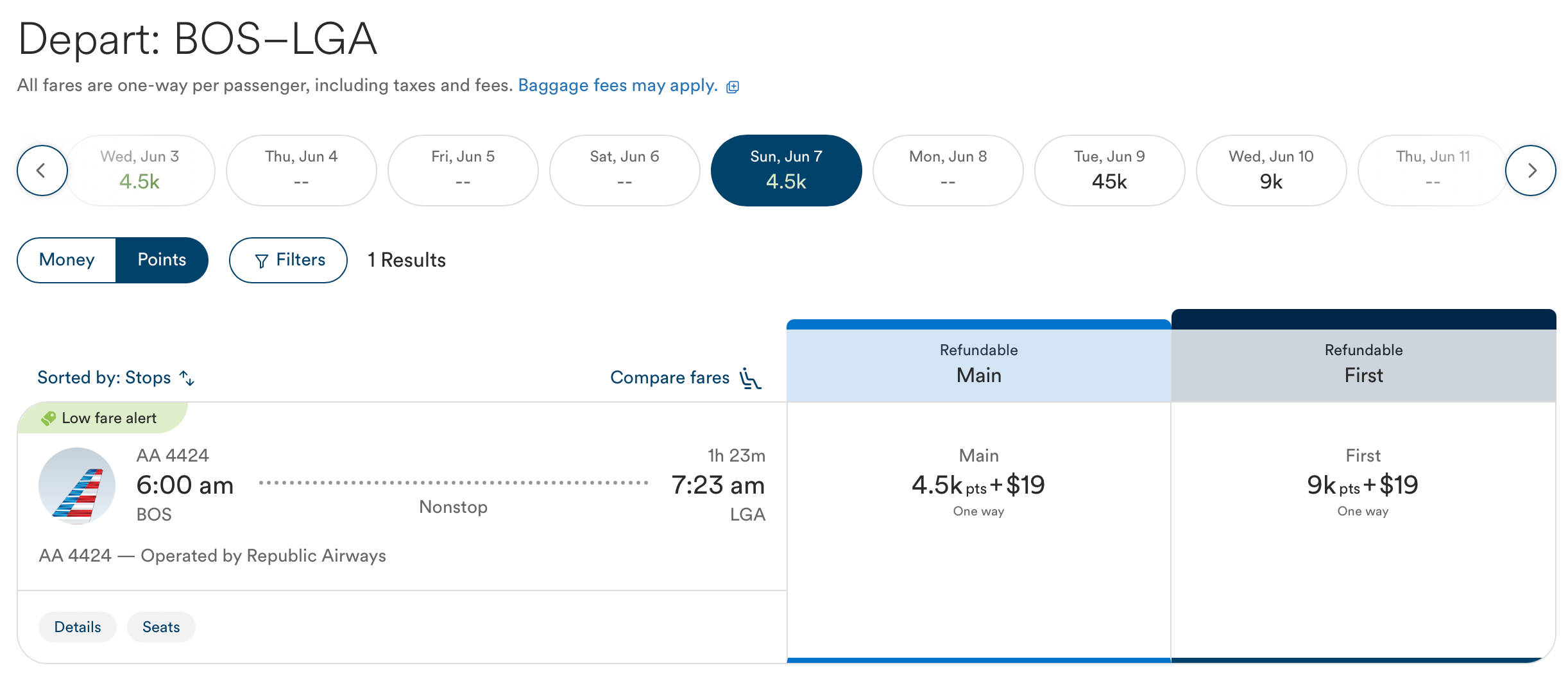
RELATED: Redeem Points and Miles: How to Search Flight Award Availability on Major Airlines
ExpertFlyer Limitations

Most award seat availability shown on ExpertFlyer is in the offer tiers of all programmes, so the flights you find should be bookable in any partner program currency. For example, if you find award class on a Turkish Airlines flight through ExpertFlyer, you should be able to book it through United MileagePlus or Air Canada Aeroplan, since all three airlines are Star Alliance partners.
The biggest disadvantage of using ExpertFlyer is the lack of airlines. Earlier we mentioned that the service can search for award and upgrade space on 27 airlines. Years ago, ExpertFlyer supported 87 airlines. The reduction in supported airlines is disappointing, although ExpertFlyer can still make your travel life easier on the airlines it supports – especially if you fly American Airlines frequently.
Related: The 7 Best Airline Sweet Spots for Redeem Points and Miles
ExpertFlyer Quick Tips

Now that you know how to use ExpertFlyer, here are some quick tips on how to get the most out of the tool. Keep these tips in mind and you’ll save a lot of time when searching for great award tickets with ExpertFlyer:
- If available, select your preferred departure time when searching for award flights. ExpertFlyer displays a limited number of results, so on popular routes with multiple flights per day, some flights may not appear even if award space is available. However, you can only do this with certain supported airlines.
- Premium subscribers can easily return to previous searches using the Saved Queries feature.
- When switching search dates, use the Refine Search button instead of the back button. This will keep search fields such as airport and date intact.
- Check out the ‘New to ExpertFlyer?’ page for in-depth videos on using the various features of the platform.
RELATED: 6 Best Places to Save Money on Domestic Flights with Awards Charts
bottom line
Finding award space on an airline, especially in first class, can be an art form (and a challenging one at that). Today, there are many partnerships within and between airline alliances, and some websites and phone agents are better at finding available seats than others. That said, in the world of points and miles, knowledge is power, and that’s exactly what ExpertFlyer delivers.
Learning how to set up seat alerts with ExpertFlyer can help you get rid of a less-than-ideal seat or find two seats together. Despite the recent decrease in supported airlines, ExpertFlyer remains a powerful tool for travelers.



